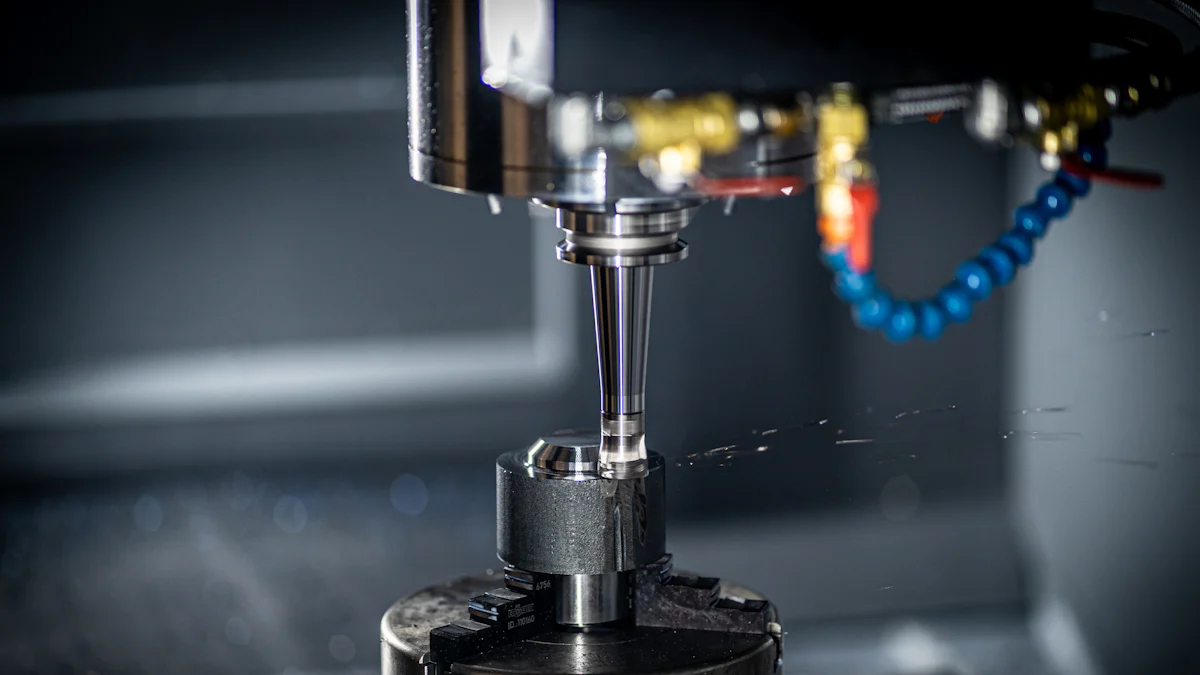Exploring the Impact of Machining Technology on Part Processing Accuracy

The Evolution of Machining Technology
Advancements in CNC Machining
Over time, machining technology has undergone significant advancements to improve the precision of part processing, thereby revolutionizing modern manufacturing. The evolution of CNC machining, tooling materials, cutting parameters, and machine calibration has played a pivotal role in achieving accuracy in part manufacturing. Additionally, the implementation of effective cooling methods and quality control techniques has become increasingly crucial in ensuring the overall accuracy and precision of part processing.
Advancements in CNC Machining
Evolving CNC Systems
The realm of CNC machining has witnessed a remarkable transformation with the introduction of advanced computer numerical control (CNC) systems. These systems have redefined manufacturing processes by enabling the production of high-precision parts with unparalleled accuracy. The utilization of CNC technology empowers manufacturers to create intricate and complex part designs, thereby significantly enhancing the overall precision and quality of part processing.
Innovations in CNC Software
The evolution of CNC machining is further propelled by continuous advancements in CNC software. These innovations have revolutionized machining operations, leading to a substantial improvement in part accuracy. Advanced CNC software optimizes tool paths and cutting strategies, resulting in enhanced precision and efficiency in part processing. This integration of cutting-edge software technologies has played a pivotal role in elevating the standards of accuracy and reliability in modern manufacturing.
Influence of Tooling Materials and Cutting Parameters
The selection of tooling materials has a profound impact on the overall quality and precision of part processing. The right choice of materials significantly influences the surface finish and dimensional accuracy of the final product. By optimizing the tooling materials, manufacturers can enhance tool life, minimize machining errors, and ultimately contribute to the precision of part processing.
When it comes to cutting parameters, fine-tuning is essential for achieving precise part dimensions. Adjusting parameters such as speed, feed, and depth of cut plays a crucial role in maintaining accuracy during the machining process. Balancing these cutting parameters ensures minimal tool wear and optimal chip control, which are vital factors in improving part processing accuracy.
The Role of Machine Calibration
Ensuring Precision through Equipment Calibration
Machine calibration stands as a cornerstone in the realm of manufacturing, ensuring the maintenance of dimensional accuracy and geometric precision in part production. The process involves fine-tuning and adjusting machinery to adhere to stringent quality standards, ultimately contributing to reliable part processing accuracy.
Advanced Precision Calibration Techniques
Precision calibration techniques have emerged as instrumental tools in achieving unparalleled accuracy in machine tools. Techniques such as laser interferometry enable manufacturers to attain sub-micron level precision, minimizing errors and deviations during the machining process. By incorporating these advanced calibration methods, manufacturers can elevate the precision and reliability of part processing, thereby meeting the exacting demands of modern manufacturing.
Importance of Cooling Methods
In the realm of modern manufacturing, the significance of cooling methods in machining cannot be overstated. Effective cooling plays a crucial role in maintaining the integrity and precision of part processing, ultimately contributing to the overall accuracy of manufactured components.
Coolant Systems in Machining
Coolant systems are instrumental in dissipating heat and reducing friction during the machining process. By efficiently managing heat generation, these systems prevent thermal deformation and minimize tool wear, thereby preserving the dimensional stability and integrity of the parts being processed. The use of advanced coolant systems has become indispensable for achieving accurate part processing in contemporary manufacturing environments.
Advancements in Cooling Technologies
Innovative advancements in cooling technologies, such as cryogenic machining, have revolutionized part processing accuracy by enhancing surface quality and dimensional precision. These cutting-edge technologies optimize cooling strategies to minimize thermal errors, ensuring superior levels of accuracy in part manufacturing. The integration of advanced cooling methodologies has significantly elevated the standards of precision and reliability in modern machining processes.
The Future of Machining Technology
Advancing Precision in Part Manufacturing
As technology continues to progress, the focus on enhancing part processing accuracy remains at the forefront of machining advancements. The integration of digitalization, automation, and AI-driven machining solutions is set to revolutionize the precision of part manufacturing. These innovative techniques and technologies are poised to elevate the standards of accuracy in part processing, shaping the future of manufacturing. Continuous research and development endeavors will lead to unprecedented levels of precision, ensuring that manufacturers can meet the increasingly stringent demands for accuracy in part production.
See Also
Perfecting CNC Machining for Manufacturing Precise Parts
Delving into CNC Machining for Precise Metal Manufacturing
Recognizing the Significance of Precision CNC Machining in Production
The Significance of CNC Cutting Precision: Investigating Engineering Accuracy
Variables Impacting CNC Precision Parts Pricing: A Comprehensive Review
About US
Follow Us
Your prototype holds unparalleled significance, and we deeply value its uniqueness. Collaborating with you during the preparation phase for running your prototype or parts is a commitment we gladly embrace. Whether it's a single part or a complex assembly, we are dedicated to selecting the optimal tools and pathways to bring your envisioned product to life.
At Precision Fab CNC Machining, we specialize in producing parts for prototypes, short runs, and high-volume production. Our prototyping machine capabilities extend across metal, plastic, and wood machining, with welding fabrication services available to complement and finalize your prototype if required.
Address
Address: Room320 10F, Building A,Nanshan international building, Dayawan District, Huizhou, Guangdong, 516001 China
Contacts
billy@timaycnc.com

